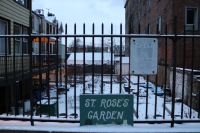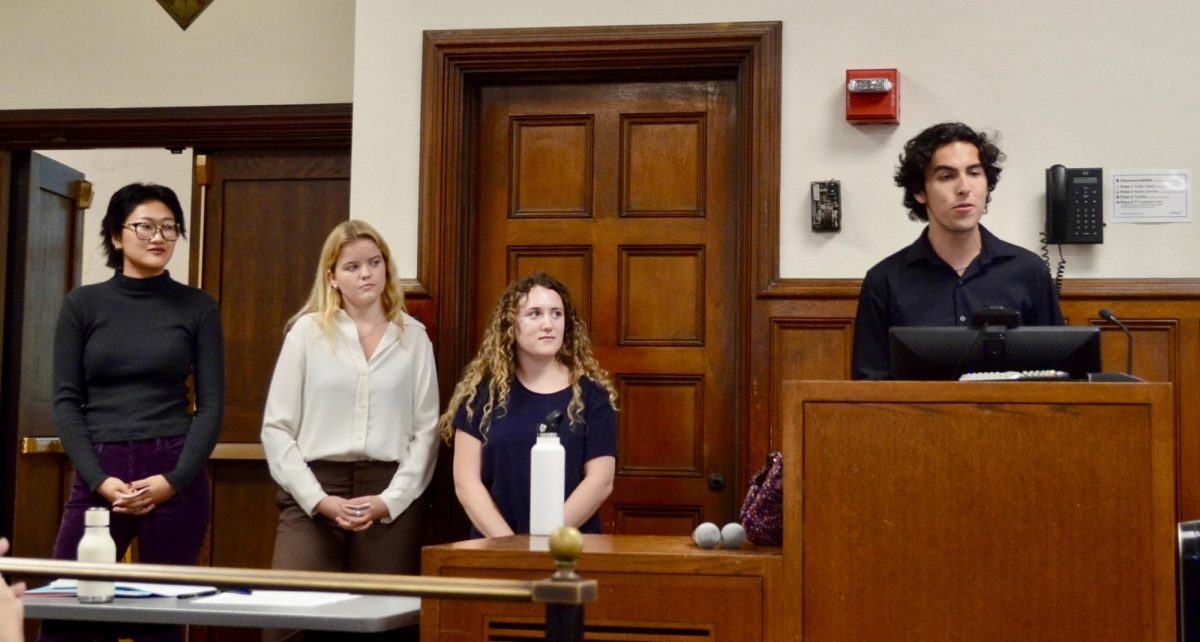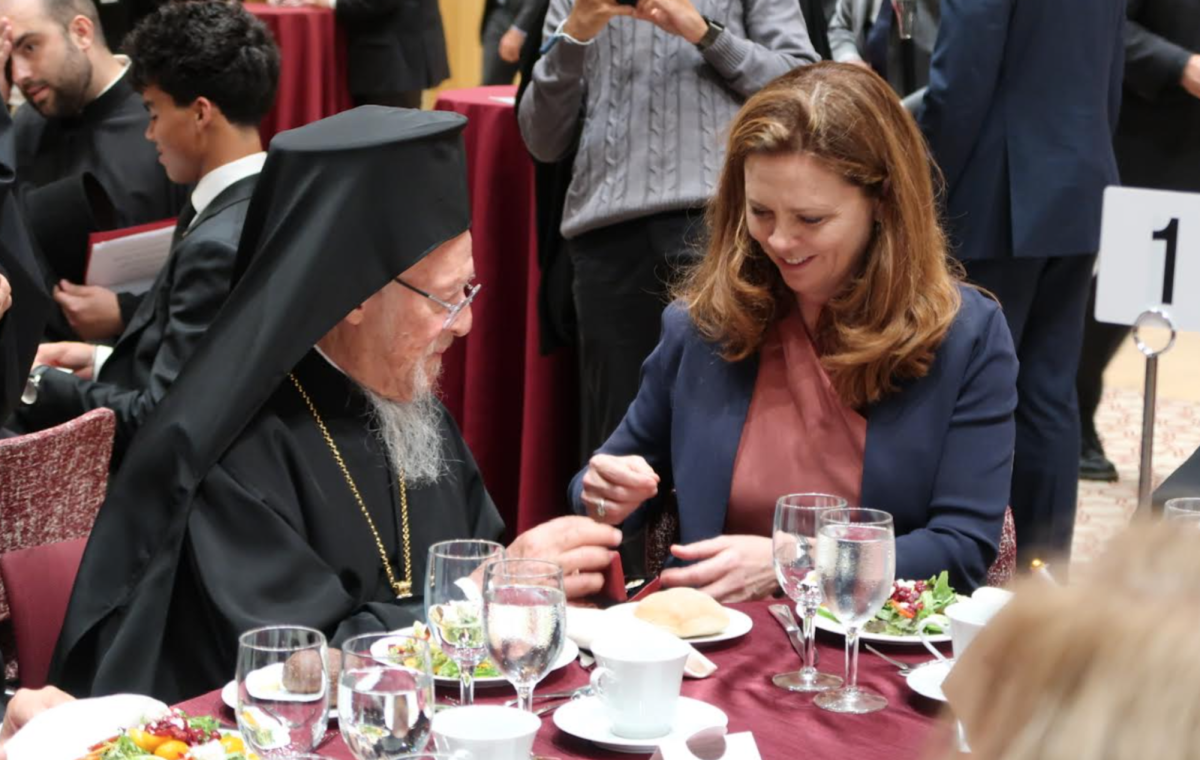By Jaclyn Weiner

For the past three years, Fordham’s community garden has been turning its organic waste with a shovel, doing its best to keep it warm and compost. Now armed with new equipment to assist in composting from the New York City Compost Project, St. Rose’s garden can more effectively and efficiently turn our organic waste into fertilizer.
This has simplified composting for the garden, according to Bryan Kiel, FCRH ’17, garden manager.
“The process is much easier than turning it with a shovel and trying to keep it warm, which is what we’ve been doing the past three years or so. Because it’s all centralized and enclosed, the process works much more easily,” said Kiel.
Thanks to the project, they are now in possession of a green, plastic compost bin called an auger. This is a metal tool used to spin the material with bags of wood chips, a necessary material that keeps the compost as nutrient-rich as possible.
Approximately 20 Fordham students participate in composting on campus, according to Kiel. Along with the 20 students, the community at Ciszek Hall, near the Fordham Rose Hill Campus, takes part in the composting project. Ciszek Hall is the home of the Jesuit scholastics in First Studies at the University.
Brendan Gottschall, a Jesuit scholar, said composting duties are now required in Ciszek Hall. They bring their waste to the compost bin once a week. Each week, around 50 pounds of compostable material is taken to St. Rose’s Garden.
Additionally, St. Rose’s garden has recently partnered with Mario Badro, FCRH ’18, a resident assistant in Salice-Connelly, to start a small compost project in the dorm. They will have volunteers come to collect their waste once a week.
Badro said that he was compelled to start composting due to the amount of waste he produced in his apartment.
“When I started my Resident Assistant position this year in Salice-Conley, it was evident that with apartment-style housing there was the ability to reduce organic waste,” said Badro. “The first month of cooking for myself I realized how much trash I was producing and understood that most of it could be recycled.”
St. Rose’s Garden uses the compost in the beds of its garden. It provides nutrients to the fruits and vegetables it grows, such as kale, collard greens, cabbage, tomatoes, peppers and broccoli.
Kiel encourages students to bring readily-compostable material because the facility is small. Readily-compostable material includes products such as fruit and vegetable scraps and peels, egg shells, napkins, shredded cardboard and paper towels. They discourage products such as grain materials, meats and dairy because they take a longer time to compost. This runs the risk of adding unwanted bacteria and microbes that will not break down easily.
St. Rose’s Garden sells its produce each week for 10 weeks out of the year at the McGinley Center on the Rose Hill campus, according to their Facebook page. It is 16 dollars a week to buy six to eight pounds of produce. St. Rose’s Garden also delivers food to local charitable organizations.
The Project Manager of the NYC Compost Project hosted by the New York Botanical Gardens works with 51 composting sites according to Jodie Colón.
The NYC Compost Project was founded in 1993 by the NYC Department of Sanitation Bureau of Waste Prevention, Reuse and Recycling. Since, it has helped communities throughout NYC create and improve composting sites by providing materials, education and technical support to help in recycling organic waste and developing sustainable urban farms. The NYC Compost Project also helps with issues such as maggots, stealing and troubleshooting.










































































































































































































